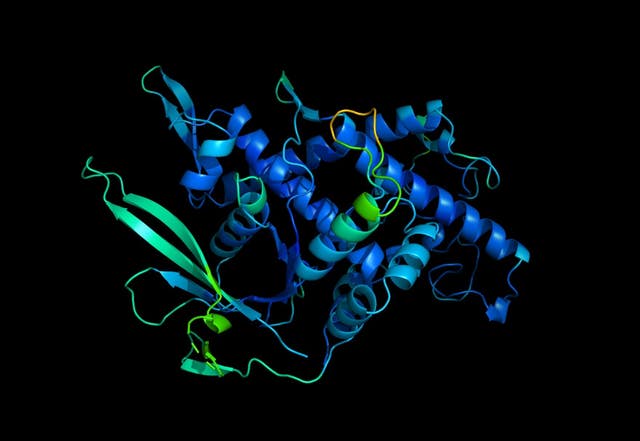
Artificial intelligence can now be used to predict how all of life’s molecules interact with each other with “unprecedented accuracy”, scientists have said.
The program, called AlphaFold 3, could help supercharge the hunt for new drugs and treatments for some of humanity’s most devastating diseases, such as cancer, Parkinson’s, malaria, tuberculosis and many more, according to its creators Google DeepMind.
AlphaFold 3 is able to envision how the complex shapes and networks of molecules – present in every cell in the human body – are connected and how the smallest of changes in these can affect biological functions that can lead to diseases.
It can also help scientists predict how these molecules will interact with potential treatments, such as antibodies and drugs.

Sir Demis Hassabis, founder and chief executive of London-based DeepMind, said the program gives researchers a “toolset”, that can “increase the speed of the drug discovery process massively” and “transform our understanding of the biological world”.
Every living cell operates with what researchers describe as “molecular machines” made up of proteins, DNA, small molecules known as ligands, and many more.
“By seeing how they interact together, across millions of types of combinations, can we start to truly understand life’s processes,” the DeepMind team wrote in its blog.
When provided with a list of molecules, AlphaFold 3 is able to generate their joint 3D structure, predicting how they would all fit together.
The team said AlphaFold 3, which powers its free tool known as AlphaFold Server, is 50% more accurate than the best traditional methods available and can produce predictions within seconds that would normally take months or years to do.
Dhavanthi Hariharan, product manager at DeepMind, said the AlphaFold Server is “a one-stop solution to generate lots of biological molecules by clicking a few buttons”.
“It is currently the most accurate tool in the world for predicting how proteins interact with other molecules.”

Sir Demis said the tool builds on the “big milestone moment in structural biology” of AlphaFold 2, an earlier model that predicted the structures of almost every protein made by the human body.
In December 2020, AlphaFold was recognised as a solution to the 50-year-old grand challenge of protein structure prediction by the organisers of the Critical Assessment of protein Structure Prediction (Casp).
Details of AlphaFold 3 – which also involved a team of experts at DeepMind spin-off Isomorphic Labs – have been published in the journal Nature.
The team said more work is needed to improve the accuracy of the models, which will “incur an additional computational cost”.
Matthew Higgins, EP Abraham chair of structural biology at the University of Oxford, who has been using AlphaFold to study malaria vaccine candidates, said the tool “will make a huge difference to the ability of scientists across biomedical research to understand how the machinery in our cells works”.
Commenting on AlphaFold 3, Dr Nicole Wheeler, Birmingham Fellow at the Institute of Microbiology and Infection, University of Birmingham, said it “offers a lot of promise in expanding what we can do with these AI tools for understanding and engineering biology, like designing biological parts to control the expression of genes or designing small molecules to treat disease”.


Comments: Our rules
We want our comments to be a lively and valuable part of our community - a place where readers can debate and engage with the most important local issues. The ability to comment on our stories is a privilege, not a right, however, and that privilege may be withdrawn if it is abused or misused.
Please report any comments that break our rules.
Read the rules here